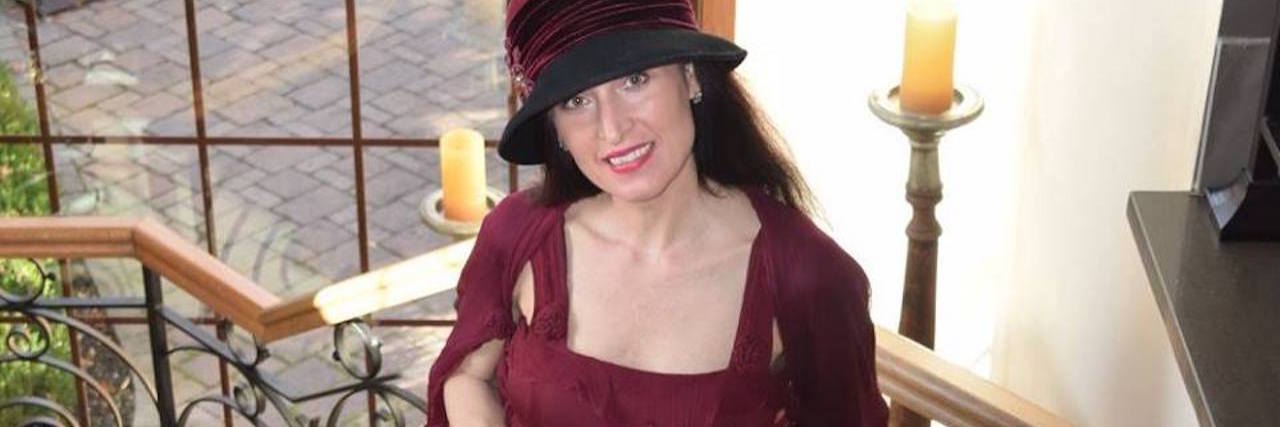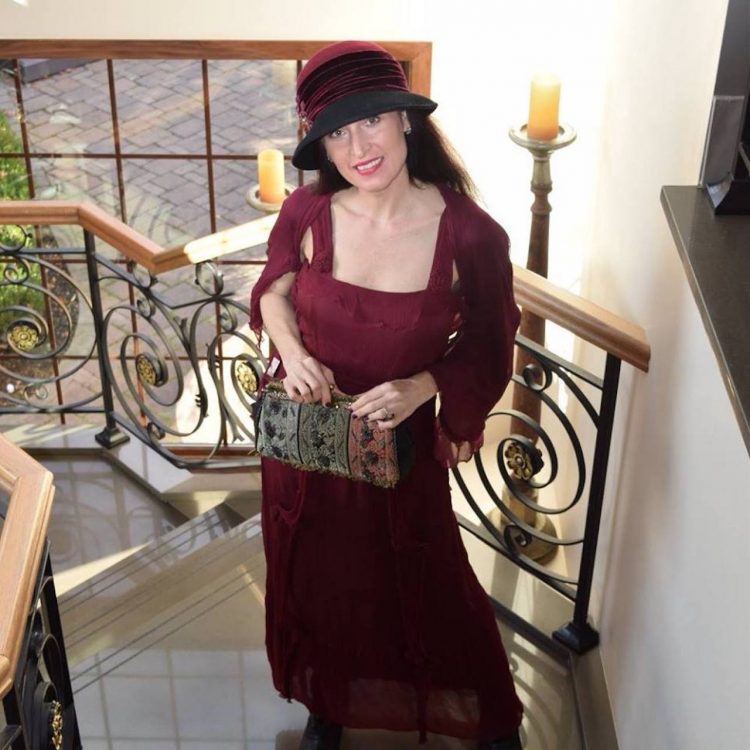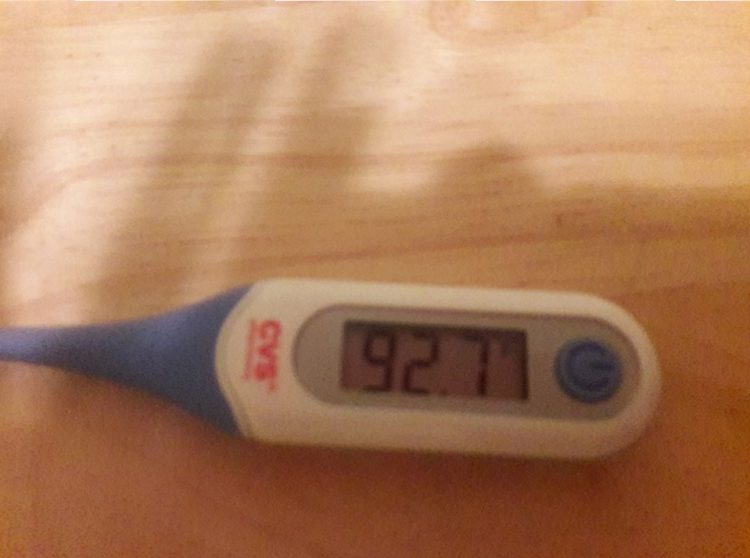What it is really like to live with primary immune deficiency disease (PI):
We spend a lot of time alone.
For me it started in early childhood. My mom had to work and I was too sick to go to school sometimes as many as 60 days a year. This was the 1970s, so no, I didn’t get home-schooled or a tutor. I had to just keep up. Friends would let me know what I missed, but I did a lot of my leaning on my own from my bed. We didn’t have all the channels we have today but I watched channel 13 all day every day because they had educational programs, and even though I was just a kid and home alone I didn’t want my mind turning to mush.
As an adult I retreat from all but a few social activities once winter cold and flu season is in full swing to avoid getting sick. This means lots of time alone, but I do tend to go all out on the days/events I do get to attend. Primary immune deficiency patients have to learn to entertain themselves so we don’t turn into Tom Hanks in that movie “Castaway” where his only friend is a volleyball. We may take up art, reading, writing or scrapbooking. One of my pastimes is I try to get indoor work done that I won’t want to spend much time on in the summer. I also have pets – five cats and two birds. They are my constant companions.
We have more bills and less earning potential then most.
The treatment for my condition is immune globulin and it’s super expensive. In fact, I have only heard of a few other conditions more costly that are also incurable and for life. A problem for many patients is what kind of work can you do if you can’t be around people all the time and you have lots of conditions, side effects and symptoms. I can’t be around people who may be sick, I avoid crowded places, schools and hospitals. I am on too much medication to operate machinery. I can’t always even get out of bed. I am 45 and I still haven’t figured out how to earn more money than I cost.
It may have helped if I had an early diagnosis and could have known what I would be living with while I was still in college. I may have studied computers or something relatively solitary, but computers weren’t even a big thing yet when I went to school. I have recently been learning some business skills by phone offered by a local charity, but I have been sick so much the past few months that even that has been put on the back burner for a while. I think all young people with a life-threatening primary immune deficiency should have some special vocational training or guidance, but most do not receive any special guidance. If I can’t figure out what I can do at 45, how is a teenager with PI supposed to?
People get offended.
They may get mad that you attended one event but not theirs because you are sick or trying to avoid getting sick. They may think you are making excuses, are lazy or just don’t like them. They may think you have more free and usable time than you actually do. They don’t understand how the immune system works and what a lack of a working immune system is really like, and they don’t like your answers. As though I am actually smart enough to make any of this up! They don’t understand what dealing with so many chronic symptoms really does to a person. Headaches, nausea, fatigue and muscle pain are all very common for me without me even being sick. How much could you get done each day like that? If you’re already having a hard time, how much harder would you be willing to make it for yourself?
Help can be really hard to come by.
It is very hard to raise money for primary immune deficiency disease. If you don’t believe me, I challenge you to raise funds for a primary immune deficiency charity like the Immune Deficiency Foundation or Jeffrey Modell Foundation. What you will find first is explaining PI is necessary to get anyone even remotely interested in helping, and even then the attitude is often that since it’s rare, I don’t have it and I can’t catch it, why should I care?
I’ve always been made to feel like my life is disposable. How can I not when so little effort is put into fighting my disease? Still, I have put in countless hours trying to raise awareness – something that is not easy to do when you are the patient. If I am ever cured I would have so much more time and energy to devote… maybe then I could make more of a difference.
We are misunderstood.
Healthy people don’t generally give their immune systems much thought. Patients lacking whole immune systems try to outsmart all the dangers around us. I scan every room for sick people who I might catch something from, and although I am nearsighted, I am really good at it! When I get an invitation I think about a lot more than if I want to go or not. I consider if it’s indoors or out (outdoors is safer for my primary immune deficiency disease but not my rare skin disease), how many people will be there, their ages and what the odds are of someone being sick. I accept many more spring invitations than winter and I track flu cases in my area weekly and choose to mostly stay home during peak flu activity.
So if a PI patient looks far away when you invite them to do something, we aren’t deciding if we like you or not, we are thinking about how likely it will be we will get sick. Also, a free date on my calendar doesn’t mean I am actually free. My energy levels are way different than a healthy person’s and so I can’t overbook myself or I get sick. All this risk versus reward I don’t think you can understand unless you lived it… so in a way there always is some separation in thought between us and healthy people, where we just don’t view the world in the same way.
We are most thankful to blood and plasma donors.
Without you I would not be here and everything I get to do is because of you. It’s a most amazing and generous gift you give me without even knowing me. I get to be a wife, daughter and grandmother because of you. Every holiday, every special event, every day I think about donors and am most grateful.
If we are still breathing, it’s maybe because we have had to learn a thing or two.
I am not sure how one survives long with a rare disease if they are unable to learn a lot about it. Just getting diagnosed is a huge challenge and in some cases we may know more than our doctors about some aspects of our disease. For example, most of the doctors who prescribe IG infusions have never witnessed one in person. If you want to know some infusing tips, ask a patient, infusion nurse or PI mom. PI is a fairly “new” disease and I am the first generation being given adequate levels of IG – even though my treatment came a bit late (not until my second decade of life). There is much no one knows about our condition or what our outcomes will be. We are learning as more patients are growing older on treatment. We learn from each other and from what our bodies tell us. Don’t dismiss what we have to say just because we are not doctors.
We have had to fight hard. Harder than you can imagine.
Just picture trying to get those around you to work with you – not against you – when they have no clue about your disease. We have to advocate for ourselves at school, work, in our communities and at home. Just fighting a disease would be simple by comparison.
We don’t always have the words.
I have been sick since I was 6 months old. I have no clue what “normal” feels like so I am not great at explaining how I am different. As a kid I didn’t always tell my mom that my ears hurt until my eardrums ruptured and my pillow was filled with gunk. When I was older, even into my early 20s, I thought I was normal and that everyone else must be sick all the time too. I have listened to other newly diagnosed patients with other diseases speak and they are great at explaining how their life and world is different now that they are sick. When doing public speaking I hate following someone with a different condition because I know I can’t compete!
We have been let down.
By our schools, our medical communities and even those closest to us. When you have a rare disease you generally spend years searching for answers (the average length from symptoms to diagnosis for PI is 12 years). That is 12 years of not being helped, being told it’s all in your head, that you are just “weak.” That is years of everyone failing to help you or telling you that you are OK when you’re not. You can’t un-know all you have known. We know doctors are practicing medicine and that no – not everyone knows everything. We still may love and have the utmost respect for our medical team, but most us never give anyone the reins. Most us of have also had to fire more than our share of doctors. The best doctors for us remain engaged, are like detectives and never ever give up.
We are pioneers.
The medical community is learning from us as we speak. So is everyone else.
We don’t live in bubbles, but we still need to be careful.
PI is a mostly invisible illness so people don’t realize how life-threatening some types can be and may not take them seriously. How careful a patient needs to be varies incredibly. There are over 300 known types of PI and each may range in severity. Let the patient, parent or doctor tell you what they can and can’t do.
The stress on relationships is real.
So many of my PI friends are divorced. Apparently not everyone believes in the “in sickness and in health” part. Or they do but they don’t expect sickness to come until much later. I have been blessed with a wonderful husband, but that doesn’t mean things wouldn’t be easier if I weren’t sick. PI affects the whole family, even if they don’t realize it at first.
Chronic illness can be a bit like prison.
One of our cousins was a prison guard for many years and he told me something once that always stayed with me. He said some long-term prisoners may not really want to get out of prison or may not make it out there on their own if they do. After years of being institutionalized they just can’t handle living in the world anymore and many end up returning to prison. I always wonder if I were cured, how would I spend my time if not so structured by appointments, medications, treatments, special diets, etc.? What if I just woke up symptom-free each morning and could have any career I wanted, go anywhere or see anyone? What if I wasn’t always afraid of getting sick? I can’t even picture it but I still hope every day for a cure. If not for me than for the young people who have not yet been “imprisoned” by this disease.
Some days we feel like living science projects.
We sometimes get weird symptoms or side effects no one else does. I spent most of this evening getting my body temperature up from 92 degrees. My ribs hurt from shaking. Was I eating ice cream outside in the cold? Out drinking alcohol in a wet t-shirt? No – I was bundled up in my house since this Tuesday drinking hot tea with my heat turned up to 88 degrees. My body just decided to have trouble regulating temperature – just like that.
Our bodies don’t always cooperate or even behave normally. Expecting the unexpected is just part of trying to live with this disease.
We want to hear your story. Become a Mighty contributor here.



